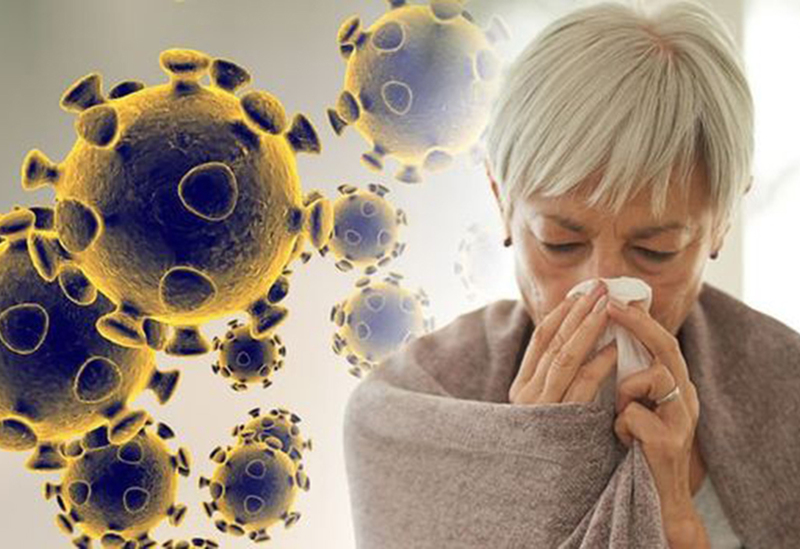News
Eagle County health officials step up coronavirus precautions

This article first appeared on Vaildaily.com on February 26, 2020.
Key stakeholders in the Eagle County Public Health system have been collaborating for weeks to discuss response options for COVID-19, the disease caused by the novel coronavirus, should it arrive in Eagle County.
Eagle County has not yet experienced a case of COVID-19. However, health officials agree that it is only a matter of time before cases emerge in Colorado and locally. Most illnesses are relatively mild, according to Rebecca Larson, Epidemiologist and Deputy Director for Eagle County Public Health and Environment. “Approximately 80% or more have had fever, with cough or aches and have recovered without needing any special medical treatment,” she said. “The greatest risk for severe illness and complications is among older adults, especially those 80 years of age or older or people with pre-existing health conditions.”
“The level of COVID-19 spread taking place in communities outside of China is another important indicator that we need to be prepared locally for its arrival,” said Heath Harmon, Director of Eagle County Public Health and Environment. “Let’s face it, we have a lot of residents who travel internationally and we welcome those international travelers into our community. We don’t want people to panic. We do want people to know there are many actions that can be taken to protect yourself. In addition, we want people to know these are the same actions that will slow the spread and benefit the community as a whole.”
Recommendations to prevent illness:
Avoid close contact with people who are sick.
Avoid touching your eyes, nose, and mouth
Stay home when you are sick.
Cover your cough or sneeze with a tissue and properly dispose of it.
Clean and disinfect frequently touched objects and surfaces using a regular household cleaning spray or wipe.
Wash your hands with soap and water frequently, for at least 20 seconds, especially before and after touching your nose, mouth, or eyes. An alcohol-based hand sanitizer is a good alternative if you don’t have access to a sink and soap.
Recommended precautions for employers:
Encourage people to stay home when they are sick.
Send home staff who become sick at work. Rest is important for their recovery, as well as preventing transmission in the work environment.
Encourage people to wash their hands frequently.
Disinfect surfaces on a regular basis and promote the availability of disposable wipes for keyboards, and other surfaces that are frequently used.
Consider flexible work options for employees that can work from home.
Healthy people who recently traveled may return to work unless otherwise indicated by Public Health.
Recommendations for those who get sick:
- Stay home if you develop a fever, cough or shortness of breath.
- Wear a face mask (surgical mask if you have one) or cover your cough and sneeze.
- Wash your hands frequently and don’t share personal items (drinking glass or utensils) with others.
- Call your healthcare provider. Do not show up at a clinic, urgent care or the emergency department unannounced.
- Your doctor’s office will assess your illness on the phone, which may include information or other guidance for you and household members.
- Testing for COVID-19 is not a routine test. Your healthcare provider will work with local and state public health officials to determine who should be tested for COVID-19. All testing is currently limited to those with the highest risk of exposure.
- Since many of the illnesses are mild, we expect most COVID-19 patients will be isolated in their own home to rest and recover. If possible, sleep in a bedroom and use a bathroom that is not used by other household members.
- There is no antiviral treatment for COVID-19. Getting rest and drinking plenty of fluids will likely be helpful for recovery. Only the most critically ill will be hospitalized.
In the event of an outbreak, information will be posted at ECemergency.org. This will include links to current information from local, state and national public health sources.
People concerned that they have symptoms consistent with COVID-19 infection should stay home and call their healthcare provider. After assessment, if healthcare providers are concerned that a patient’s symptoms may be related to COVID-19, they are asked to contact public health officials. For more information, visit http://www.eaglecounty.us/COVID19.
More News
-
New!
More

The Midnight Bathroom Run: Why It Happens and How to Stop It
If you’re waking up at night to pee, you’re not alone, and you’re not doomed to a lifetime of restless sleep. Nocturia, or nighttime urination, is one of the most common and under-discussed sleep disruptors, affecting both men and women, especially as we age. But according to Dr. Joseph Dall’Era, a urologist at Vail Health, it’s not something you have to simply “live with.” “Usually, we imply nocturia if the urge to urinate is what actually wakes people up,” Dall’Era explains. “For most people, getting up once a night isn’t a big deal. But if it starts to interfere with sleep quality or you notice a change in how often it’s happening, that’s worth a closer look.”
-
New!
More

Healing from the Inside Out: How Nutrition Supports Recovery
Whether you are recovering from a minor scrape, a sports injury or major surgery, what you eat can significantly impact how well, and how quickly, you heal. While your body is working hard to repair tissue, fight infection and restore strength, it needs the right fuel to do its job. Below are some simple ways to incorporate key nutrients into your diet to help your body repair itself.
-
New!
More

Supplements, Simplified
Nutrition noise is loud. From gym bros preaching powders to influencers pushing miracle capsules, it’s hard to know what your body really needs and what’s just hype. The truth? Supplements aren’t a one-size-fits-all, and they’re not meant to replace real food.





